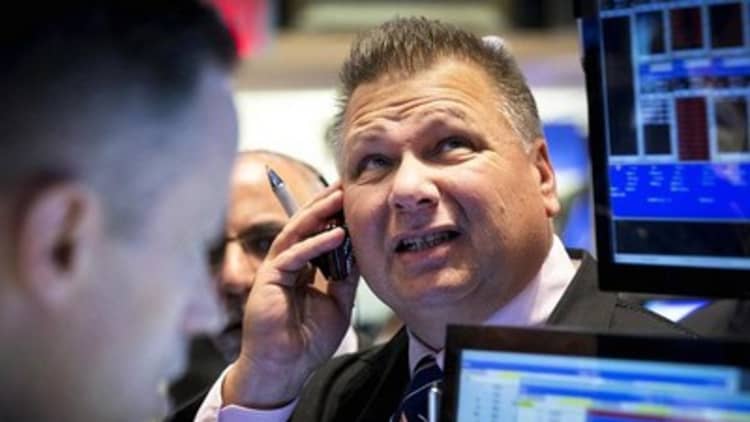The so-called smart money is pulling back from market risk, with fund managers taking down exposure to stocks, increasing cash holdings and buying protection against a sharp selloff.
It's hardly panic though. Managers of hedge funds, mutual funds and other large investors are still fundamentally optimistic despite the recent increase in caution. Most expect Greece to stay in the euro zone and expectations for global growth remain near their highs, according to a new Bank of America Merrill Lynch survey.

Read MoreThese investors like Greece debt talks breakdown
The bank, which provides services to many fund managers, surveyed 207 money management clients with a combined $562 billion in assets from June 5 to June 11. Notable findings include:
- On Greece, 43 percent of managers expect a positive resolution; 42 percent predict a default but no "Grexit," or euro zone departure; and just 15 percent expect such an exit.
- On risk insurance, a record number of fund managers, 31 percent, now have some type of protection against a sharp fall in stock markets in the next three months. That compares to 23 percent in April and is the highest net figure since the survey began in March 2008.
- On cash, fund managers now have 4.9 percent of capital out of the market. That's near highs of the last decade but not dramatically different than lows of around 3.2 percent in 2009 immediately after the financial crisis.
- On equity exposure, fund managers have reduced bets on stocks and increased allocations to commodities—the lowest level for the ratio since December 2012—but positioning remains well above 2008 to 2012 levels (commodities are often seen as a safer investment when stocks fall).
- On interest rates, 54 percent expect a September rate hike by the Federal Reserve; 80 percent see higher short-term rates over the next 12 months.
- On global growth, 55 percent think the global economy will develop over the next 12 months, down from a high of 62 percent in March but still a bullish stance compared to most periods over the last 20 years.
- On China, investors are bearish, with 7 out of 10 believing its equity market is in a "bubble." About half see China's economy weakening.






